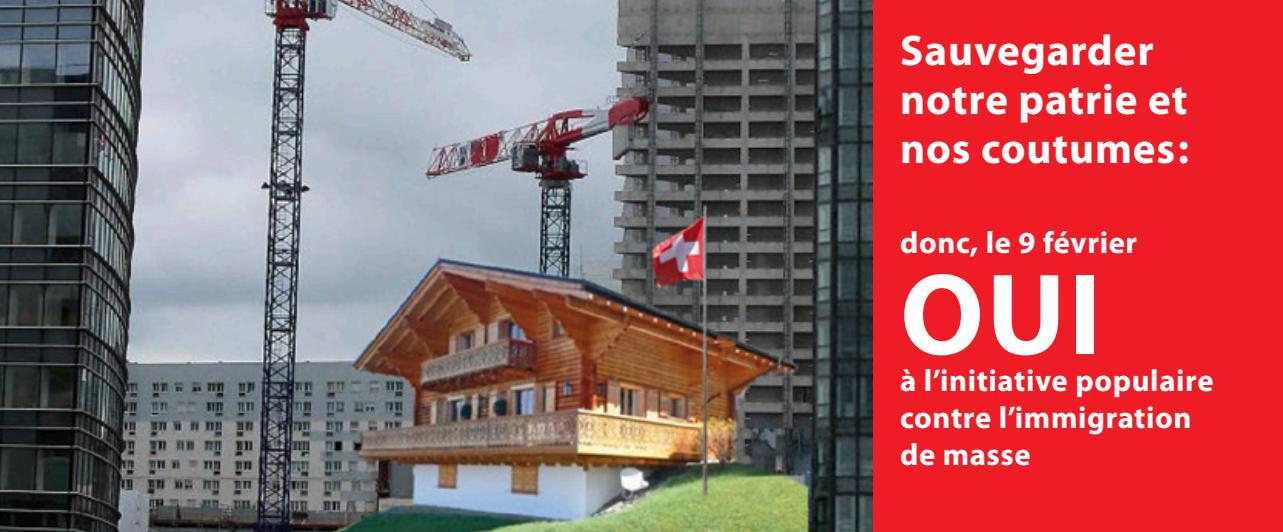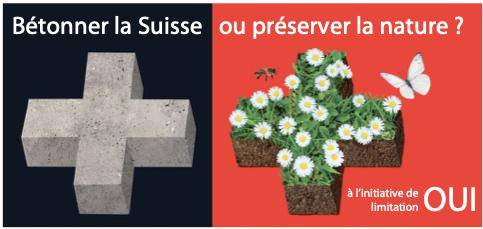Is a “green populist” movement emerging in Switzerland?
When Spanish sociologist Ander Audikana moved to Switzerland in February 2014, he never thought he’d be witness to an event that would shake up the country. In a national referendum held just a few days after he arrived, 50.3% of Swiss people voted in favor of an “against mass immigration” initiative put forth by the Swiss People’s Party (SVP). This outcome surprised many in the county’s economic and political circles – as well as the foreigners working at EPFL’s Urban Sociology Laboratory (LaSUR), where Audikana is completing his post-doc. “We decided we had to do something. That’s when we came up with the idea for a book that would examine the controversy in Switzerland over the free movement of people. We interviewed the leaders of all the main political parties,” says Vincent Kaufmann, head of LaSUR.
Kaufmann and Audikana wrote an essay in 2017 on the free movement of people between the European Union and Switzerland, but they also wanted to investigate another trend. After gathering political parties’ responses to the February 2014 referendum and to a November 2014 referendum on a populist initiative called “Stop overpopulation and help preserve our natural resources,” which was rejected by Swiss voters, Kaufmann and Audikana noted a shift in the narrative of right-wing populists. “These parties’ core platforms are still based on the traditional issues of national identity and sovereignty. But we saw that they are gradually taking on board some of the key concerns and ideas of green parties,” says Audikana. In an article appearing in the prestigious International Journal of Urban and Regional Research on July 14, he and Kaufmann describe an urban “green populist” movement that seems to be emerging in Switzerland.

Campaign poster of the initiative "against mass immigration" validated by the Swiss population in February 2014. © UDC/SVP
Pinning the blame on urbanization
The two EPFL scientists believe that these right-wing parties are “updating” their stance in order to attract voters who typically wouldn’t support them. And there is common ground between populists and greens on certain key environmental issues, as revealed in the interviews and research Kaufmann and Audikana conducted after the two 2014 referendums.
The main “green populist” issue they found relates to perceptions of urbanization in the country. It is true that more people are moving into cities, causing them to become increasingly centralized, international and interconnected. And in a small nation like Switzerland, that can lead to urban expansion, heavier traffic and higher housing costs – as well as greater pollution, more energy use and even a change in the country’s landscapes.

Extract from a UDC publication published in September 2020 as part of the initiative "for moderate immigration". © UDC/SVP
“These parties believe that urbanization in Switzerland is due to large-scale immigration, which is driving urban expansion and creating a need for additional infrastructure. They therefore conclude that, in order to curb urban development and limit its damaging effects on the environment, the government needs to put the brakes on immigration,” says Audikana.
Expanding their electoral base
Kaufmann points to a concept that emerged mainly in German-speaking Switzerland in 2014: Dichtestress, or “density stress,” referring to the increase in the country’s population density. Right-wing parties claim that if Switzerland reaches 10 million residents, its natural landscapes would be covered in concrete and its trains would be eternally full. In a special-edition newsletter that the SVP published in September 2020 in support of its “moderate immigration initiative” (rejected in a referendum), the party states: “As a result of mass immigration, an area of countryside equal to 2,941 soccer fields is concreted over every year. Do we really want to keep supporting such policies?”. In the same newsletter, the head of Ecopop, an environmental organization, encourages voters to back the SVP’s initiative “out of love for nature and the environment.”
At a time when right-wing parties’ mostly rural electoral base is eroding, addressing “green” issues can be a way to attract new voters, especially urban residents who feel that their quality of life has deteriorated due to cities’ increasing interconnectedness. Kaufmann and Audikana go on to explain that this strategy can be especially effective in countries like Switzerland where people feel particularly attached to their natural spaces and landscapes, and where environmental concerns are consequently high on the agenda. That makes Switzerland a good testing ground for their theories. “It’s a small country with high population density in its inhabited areas, meaning that land is a precious resource. Most of the urban development has occurred over a small area and the resulting strain makes citizens sensitive to these types of arguments. That wouldn’t be the case in Spain, for example,” says Kaufmann.
